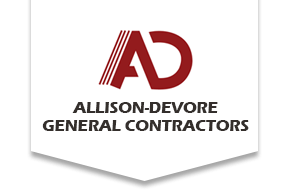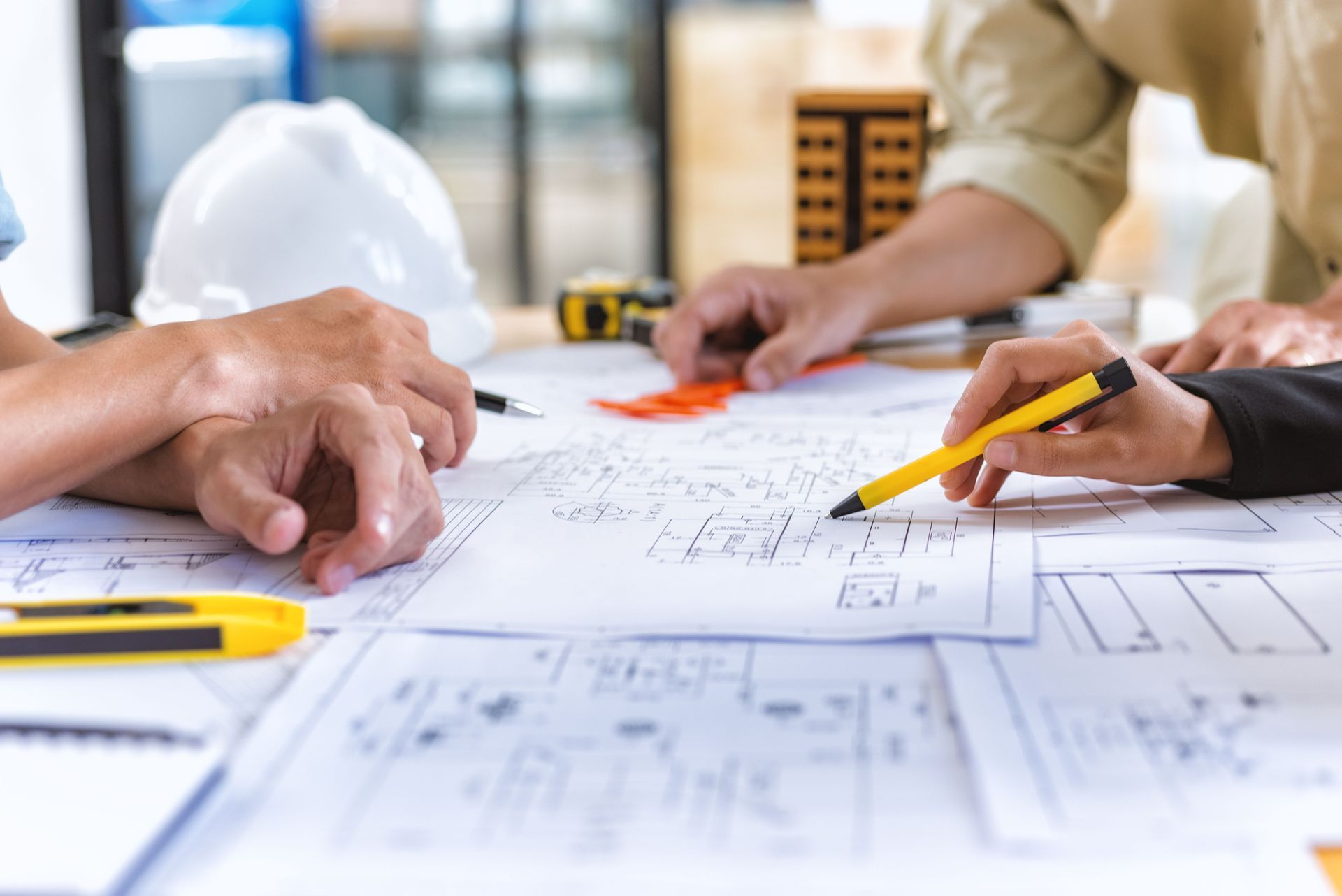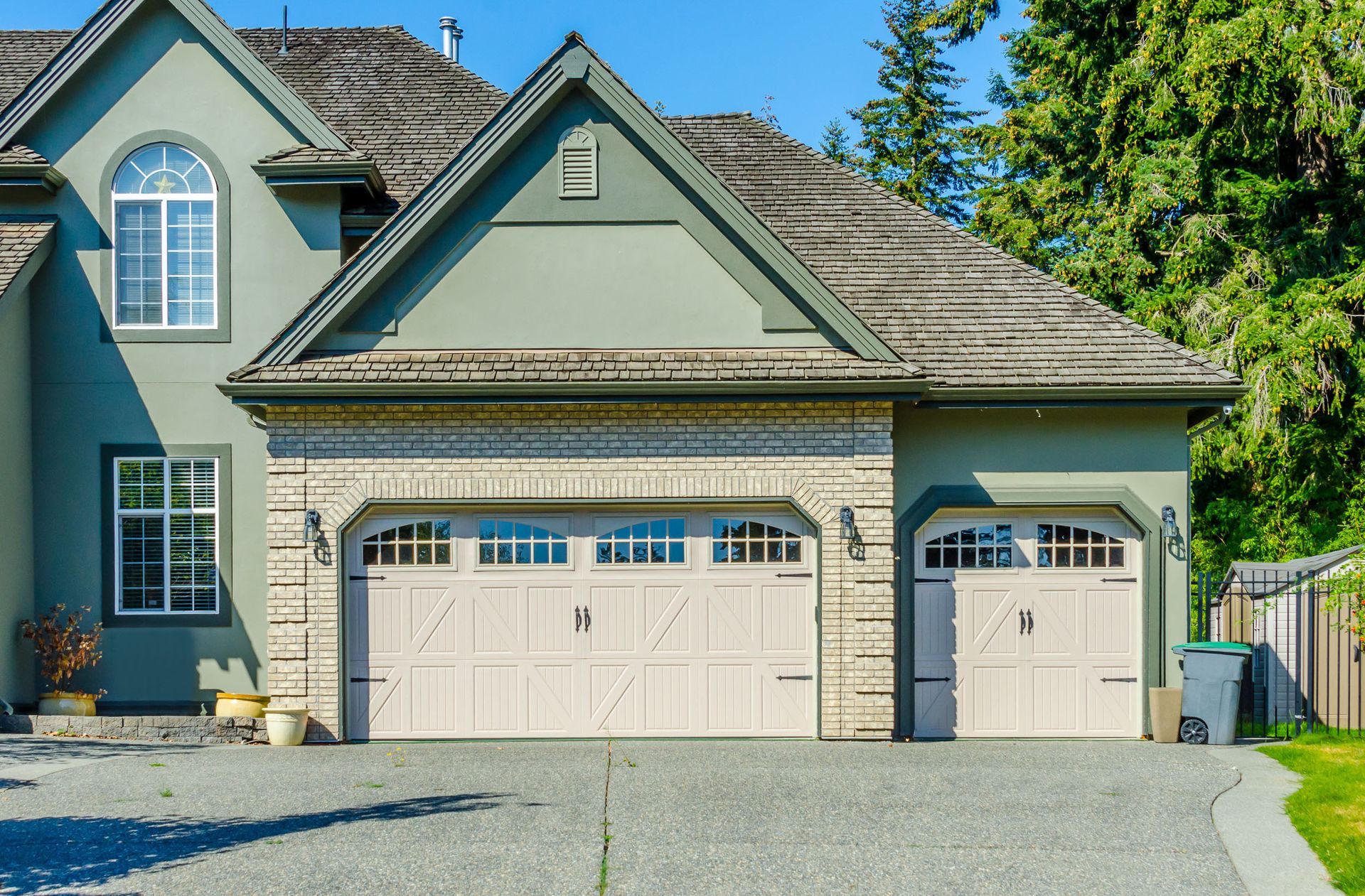Building a home is a significant investment, and therefore, it's crucial to ensure that every step of the process is well understood and agreed upon. Before the construction begins, asking the right questions to your home builder can prevent misunderstandings and potential issues. Let's take a look at a few essential questions to consider to help ensure a smooth building experience.
What Experience and Credentials Do You Have?
Before breaking ground on your new home, it's crucial to ensure that the home builder has the proper licenses and certifications. These credentials act as a testament to their credibility and adherence to industry standards. Builders with up-to-date licenses are more likely to follow all construction regulations and deliver high-quality work. It's advisable to verify these credentials with local authorities to ensure they are valid and current. This verification helps to protect against any legal complications down the road.
Reviewing the Builder’s Portfolio
Evaluating a builder's portfolio provides insight into their style and proficiency in handling projects similar to yours. By reviewing completed projects, you can assess the quality of workmanship and design aesthetics. A diverse portfolio indicates versatility and the capability to manage various types of projects successfully. Request to see examples of previous projects, especially homes that align with your vision. This assessment can guide your decision-making process, ensuring the builder's style aligns with your preferences.
Inquiring About Builder’s Experience in Your Area
It's beneficial to choose a home builder who has extensive experience working in your area. Local builders are more familiar with regional regulations, climate considerations, and common construction challenges. They are adept at navigating local bureaucracies, which can streamline the building process. Additionally, local builders often have established relationships with local suppliers and subcontractors. This experience not only facilitates smoother operations but can also lead to cost savings and timely project completion.
What Are the Project Costs and Payment Schedule?
A comprehensive cost estimate is fundamental to understanding the financial commitments involved in your project. It should clearly outline material costs, labor charges, and any additional expenses. By detailing every aspect, you can avoid unforeseen costs that might arise during construction. Each component of the estimate should be transparent, with contingencies clearly stated. This clarity allows for accurate budget planning and financial management throughout the building process.
Understanding the Payment Schedule
A mutually agreed-upon payment schedule is crucial for maintaining financial stability throughout the construction. Payment schedules should align with project milestones, offering an incentive for the timely completion of each phase. Ensure that the payment terms are clearly defined in the contract to prevent future disputes. Both parties should agree on whether payments will be made in installments or at the conclusion of specific phases. This structured approach offers security and assurance against financial mishaps.
Clarifying What Is Included in the Quoted Price
Before signing any agreements, it's vital to verify what costs are encompassed within the quoted price. This transparency helps in understanding whether fixtures, appliances, landscaping, and permits are incorporated. Some builders may offer a turnkey service where everything needed to finalize the home is included. Others might provide a base price with optional add-ons that you can choose based on preferences and budget. Understanding these distinctions avoids surprise expenses down the line and facilitates better financial planning.
Inquiring About Contingency Fees and Changes
In any construction project, unexpected changes and modifications often arise. Discussing contingency fees with your home builder can prepare you for potential alterations and associated costs. A robust contingency plan should cover procedural adaptations necessary for weather, client-driven changes, or unforeseen circumstances. Approximately 18% of custom home-building starts necessitate such provisions, according to Eye on Housing, indicative of adaptable delivery methods. Clearly defining these costs in advance enables a smoother adaptation process while minimizing financial surprises.
Defining the Project Timeline and Milestones
Establishing a realistic timeline for the start and completion of your home is imperative. Confirming start dates aids in logistical planning, such as arranging temporary living accommodations and coordinating with moving services. Completion dates are equally important as they provide a target and help align expectations. Both parties should agree on these timelines, incorporating buffers for potential delays. Realistic milestones should be part of the timeline to track progress and mitigate delays.
Understanding the Timeline for Each Phase
To manage expectations throughout the construction period, comprehend the timeline for each phase of the project. Phases often include site preparation, framing, installation of utilities, interior finishes, and landscaping. Each segment must have defined start and completion benchmarks, along with responsible parties who are aware of these timelines. Communicate with the home builder to monitor and ensure timely execution. Regular timeline reviews can help identify issues and implement corrective measures when necessary.
What Are the Design and Customization Options?
Home design choices form the backbone of your house's uniqueness and functionality. Explore a builder’s catalog of designs to understand standard and customizable options. Selection should reflect personal style, lifestyle requirements, and future growth considerations. It's essential to assess these alongside budget constraints and neighborhood aesthetics. Diverse designs that offer adaptability can transition into increased home satisfaction long-term.
Discussing Customization of Floor Plans
In modern home construction, customization enhances livability and personal satisfaction. Discussing floor plans and the extent of modification permitted aids in aligning the project with your vision. Adaptability regarding spatial modifications, amenities, and aesthetics can vary among builders. Having transparent discussions ensures you see eye-to-eye on feasible changes and their impact on costs. This clarity avoids misunderstandings and aligns the final output closer to expectations.
Understanding Limitations in Customization
Understanding the boundaries of potential customization helps align your ideas with your builder's capabilities. Structural limitations, code compliance, and financial constraints are often factors that dictate feasible changes. Discuss these openly to evaluate possible shifts without jeopardizing home integrity or budget. While ambitious changes can transform spaces, they should remain practical and within regulatory limits. Acknowledging limitations upfront establishes realistic expectations and outcomes.
How Can We Ensure the Project Is Compliant With Codes and Regulations?
Before construction starts, all necessary permits and inspections must be secured. Legitimacy and completeness of permits ensure compliance with regional and national building codes. Determine what permits fall under the builder's responsibility and which require your attention. Understanding the timeline for obtaining permits can influence the overall project timeline. Coordination over these requirements can preempt potential delays.
Understanding Builder’s Compliance with Building Codes
A responsible home builder will have meticulous systems to meet building code requirements. Familiarity with international, national, and local standards is essential, particularly for custom homes. Ensure that the builder stays informed on any revisions to existing codes that may impact your project. Regular inspections typically verify compliance during various construction stages. Assurance of adherence to these codes represents commitment to safety and quality construction.
Discussing Contracts and Legal Obligations
A comprehensive contract outlines the framework of agreements with your builder. It's crucial to detail all specifications, timelines, and financial terms transparently. Legal advice might be prudent to elucidate complex clauses that bind both parties. Describing obligations, rights, and responsibilities clearly prevents disputes and ensures a cooperative relationship. Specific enforcement of contractual terms enforces reliability and accountability throughout the project.
By asking the right questions before starting construction, you can ensure that your expectations align with your builder's capabilities and pave the way for a successful home-building experience. Each question is a step towards a clear understanding and collaborative relationship with your home builder, ultimately leading to the realization of your dream home. You can ask all these questions and more when you come to the experts at Allison-Devore General Contractors. Reach out to us today to get started!




Share On: